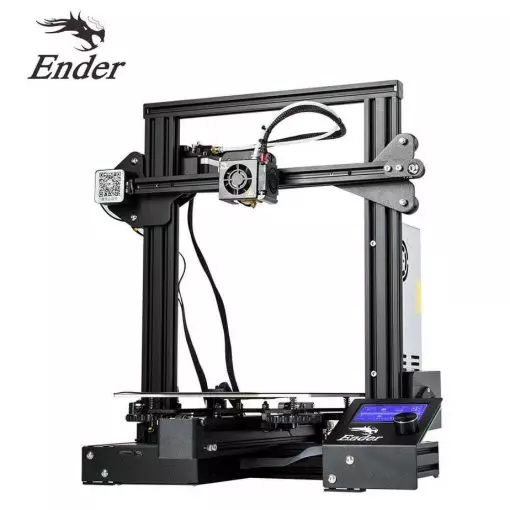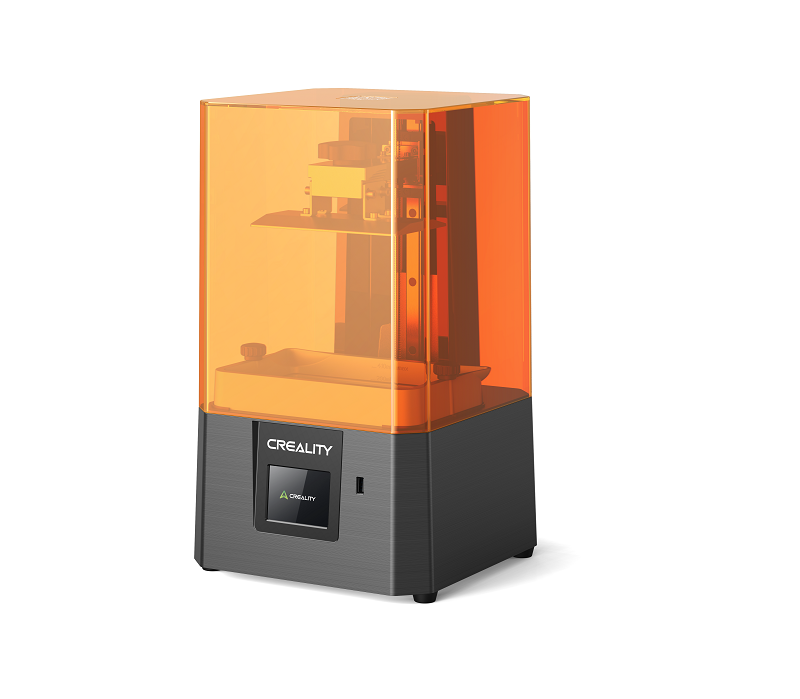Compare Ender 3 vs Halot R6
Comparison between the best 3D printers
Choose the best 3D printer at the best price. The cheapest 3D printers are here.
Buy a 3D printer here with 3D Fila.
 |
 |
|
| Model | Ender 3[BUY Ender 3] |
Halot R6[BUY Halot R6] |
| Printing Material | Filament | Resin |
| Buy Filament for Creality 3D Ender 3 | Buy Resin forCreality Halot R6 | |
| Estimated price | $210,00 | $129,00 |
| Manufacturer | Creality 3D | Creality |
| Release Year | 2018 | 2024 |
| Print Volume [mm] | 220x220x250 | 130x82x160 |
| Printer Size [mm] | 440x440x465 | 235x230x395 |
| Weight [kg] | 6,62 | 5,8 |
| Power Loss Recovery | NO | NO |
| Maximum Resolution [mm] | 0,1 | 0,01 |
| Processor | 8 bits | |
| Display | Mono | Touchscreen 2,8'' |
| Power Supply | 24V / 270W | 42W |
| Connectivity | SD / USB | USB drive, WiFi |
| Operating systems | Windows, Mac, Linux | Windows, Mac |
| Date of registration in the system | 2021-04-13 | 2024-12-05 |
| Release date | 2018 | 2024 |
| Extra features | The Ender 3 V1 is a DIY assembly 3D printer, a sales leader since 2017, standing out for its cost-benefit. With a wide printing capacity, it has a CNC machined structure for precision and stability. It offers high-precision prints with low noise, thanks to its innovative V-profile and pulleys. It has a self-adhesive magnetic platform for easy removal of models and excellent adhesion. The Ender 3 heats up quickly, reaching 100°C in 5 minutes, ideal for agile prints. It includes protection against power failures, allowing you to resume printing after interruptions, saving time and material. | The Creality Halot R6 offers high precision with a layer height of 0.01-0.2 mm, a printing speed of 60 mm/h, and an integral light source with over 90% uniformity. Compact and lightweight, it features a 6.08" monochrome LCD for faster curing and extended durability. Includes Wi-Fi connectivity via Creality Cloud, an intuitive touchscreen interface, and supports remote monitoring and timelapse recording with a USB camera. Ideal for beginners, its robust and user-friendly. |
| Support for multiple colors and materials (AMS and CFS) | NO | NO |
Notes * |
||
| Cost-benefit | 6 / 10 | 9 / 10 |
| Hardware | 0.5 / 10 | 8 / 10 |
| Tela | . | . |
| Print volume | 3 / 10 | 3 / 10 |
| Performance | 1 / 10 | 9 / 10 |
| [BUY Ender 3] | [BUY Halot R6] |
Conclusion |
| ### Conclusion In comparing the Ender 3 and the Halot R6, several key aspects emerge that help in determining the more suitable 3D printer for potential buyers. The Ender 3, a well-established model since 2018, is favored for its larger print volume and solid build quality, making it an excellent choice for users seeking versatile and larger prints. It also offers a DIY assembly experience, catering to those who appreciate customization and tinkering with their machines. However, its specs, such as a lower maximum resolution and outdated features, may not meet the demands of advanced users. On the other hand, the Halot R6, released in 2024, showcases technological advances, such as a higher maximum resolution and a user-friendly interface with a touchscreen display. Its compact design and lightweight nature significantly contribute to its appeal for beginners or users looking for a portable option. Additionally, the Wi-Fi connectivity and features supporting remote monitoring make it suitable for modern workflows. Price-wise, while the Ender 3 offers a better cost-benefit ratio, the Halot R6 provides a greater range of features and improved performance, which might justify its higher price. Ultimately, the choice hinges on user priorities: If larger print projects and a more robust build are essential, the Ender 3 is a logical choice. Conversely, those prioritizing high precision, user-friendliness, and advanced features may find the Halot R6 more appealing. |

